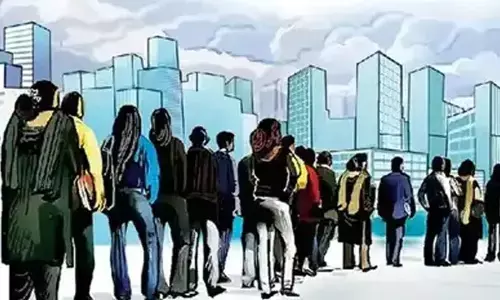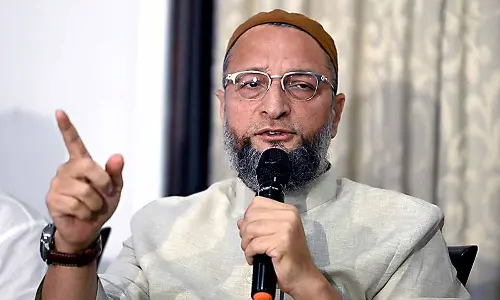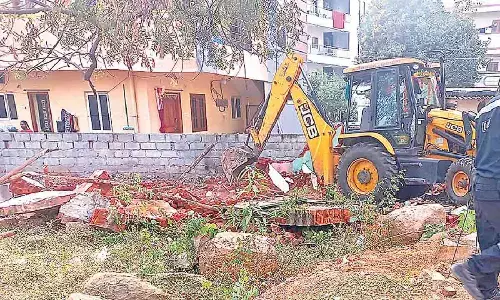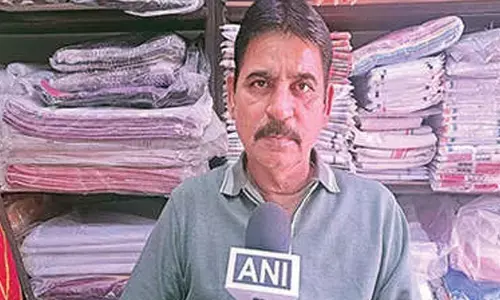Atal Bihari Vajpayee: A Journey Through India’s Political Evolution
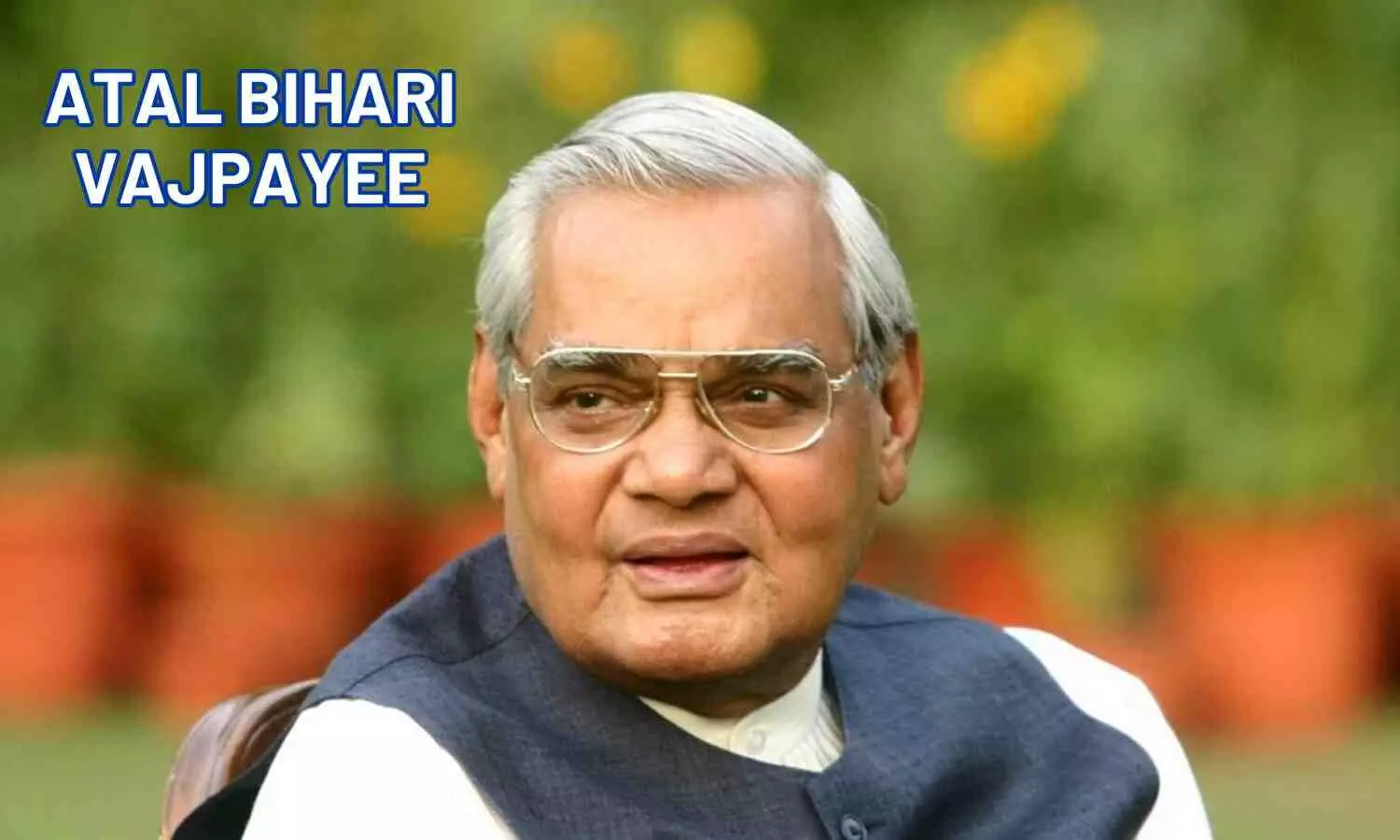
Atal Bihari Vajpayee: A Journey Through India’s Political Evolution
Learn about the life of India’s first prime minister, Atal Bihari Vajpayee, whose leadership and vision transformed the Indian political system.
On India’s first Prime Minister, Atal Bihari Vajpayee's birthday, let’s explore his political career. Discover the inspirational life of India’s first Prime Minister, Atal Bihari Vajpayee. Vajpayee's contributions to India, early political endeavors, and challenges or controversies are here.
Atal Bihari Vajpayee was a great politician and statesman who contributed significantly to shaping the new Indian politics. He also revolutionized India’s future through his effort and bravery in his political life.
Early Political Endeavors
Born on December 25, 1924, in Gwalior, Vajpayee started his political journey when he joined the Rashtriya Swayamsevak Sangh (RSS) in 1939. He was a great speaker and proud nationalist, soon leading the Bharatiya Jana Sangh (BJS). He was first elected to the Lok Sabha from Balrampur in 1957. This began a political career that lasted over 40 years. The Prime Minister, Jawaharlal Nehru, highly admired Vajpayee's speeches. Nehru predicted that Vajpayee might rise to become a leading figure in the country's politics.
The establishment of the Bharatiya Janata Party (BJP)
After the Emergency (1975-1977), Vajpayee was the founder of the Bharatiya Janata Party (BJP), which supplanted the Bharatiya Jana Sangh in 1980. He was simply supposed to be president, make the BJP a national platform, and spread "Gandhian socialism." His policies had progressively inculcated the BJP and made it its eventual power base in Indian politics.
Tenure as Prime Minister
Atal Bihari Vajpayee's political journey was marked by a number of milestones:
Pokhran-II Nuclear Tests (1998): It was evidence of India’s strategic sovereignty but also met with international scorn. It proved India’s strategic independence but also drew international condemnation. The tests were universally welcomed domestically, even though they were condemned worldwide, and helped to reinforce national pride.
Lahore Summit (1999): In a bid to establish normalcy with Pakistan, Vajpayee opened the first Delhi-Lahore bus stand, and he signed the Lahore Declaration with the Prime Minister Nawaz Sharif. This was diplomatic, aimed at sorting out a longstanding feud and building ties between the two countries, and expressed Vajpayee’s commitment to regional stability.
Kargil Conflict (1999): The Pakistani invasion of the Kargil district of Jammu and Kashmir was a nightmare. Vajpayee’s government countered with Operation Vijay and reclaimed occupied territory. His war leadership was soft and tough, and the sluggish response by India won him global fame.
Economic Reforms and Infrastructure Development: Under Vajpayee’s government, economic reforms like the expansion of privatization and liberalization programs were also introduced. He launched the National Highways Development Project (the Golden Quadrilateral) to improve connectivity and development.
Educational Initiatives: It was a project that made clear his commitment to human capital and empowerment through education.
Foreign Policy and International Relations: Vajpayee’s foreign policy also altered under his government as the nation improved relations with the big powers. His government increased bilateral ties with the United States, and President Bill Clinton was back in India in 2000 for the first time in 22 years. That trip inspired the two countries to grow their trade and economic ties. What’s more, Vajpayee’s government also attempted a diplomatic solution to territorial disputes with China that opened the way to a more favorable bilateral relationship.
Diplomatic Initiatives
Atal Bihari Bajpayee’s mentorship is an example for us that shows how to stand for the negative things. Vajpayee’s time in office saw great diplomacy:
He had set up the Delhi-Lahore bus in 1999 and had visited Pakistan to meet the Prime Minister Nawaz Sharif. The Lahore Declaration incarnated his ideal of an amicable bilateral relationship. Yet the Kargil War soon proved so. Vajpayee didn’t blink, however, and he called for Pakistani President Pervez Musharraf to go to the Agra Summit in 2001 to iron out the remaining wrinkles, which never came through.
The US president Bill Clinton’s visit to India in March 2000 set a landmark in Indo-US relations, paving the way for new trade and economic relationships. Vajpayee’s 2003 trip to China led to better bilateral ties, and both countries agreed to compromise over years of disagreement.
Challenges and Controversies
Vajpayee’s term was far from flawless. The 2002 Gujarat riots following the Godhra train crash provoked criticism. Vajpayee condemned the violence and insisted on the duty of good governance, but his government was criticized for its response, and he himself conceded mistakes.
Life and Legacy of Atal Bihari Vajpayee and Conclusion
By remembering Vajpayee on His birth anniversary, we highlighted his inspiring career. Atal Bihari Vajpayee’s political career has demonstrated his dedication to India’s progress and the foresight to tread political waters with gusto. And there is no fading of his legacy—in India’s nuclear program, economic reform, infrastructure, and reconciliation with neighbors. As a poet-politician, his message and sage advice continue to resonate with the official man of state, who has been committed to the national unfolding.











